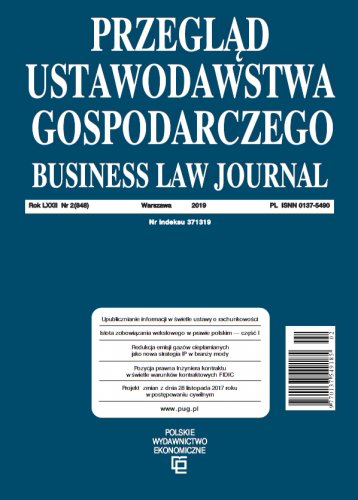Business Law Journal 05/2023
ISSN: 0137-5490
Pages: 40
Publication date: 2023
Place publication: Warszawa
Binding: paperback
Format: A4
Publication date: 2023
Place publication: Warszawa
Binding: paperback
Format: A4
DOI: 10.33226/0137-5490.2023.5.1
JEL: K23
DOI: 10.33226/0137-5490.2023.5.2
JEL: C44, O38
DOI: 10.33226/0137-5490.2023.5.3
JEL: K20, K22
DOI: 10.33226/0137-5490.2023.5.4
JEL: K11, K12, K15
DOI: 10.33226/0137-5490.2023.5.5
JEL: K23
| Odbiór osobisty | 0 € |
| Kurier Inpost | 4 € |
| Kurier FedEX | 4 € |
| Inpost Paczkomaty | 4 € |
| Free delivery in Reader's Club | from 47 € |

